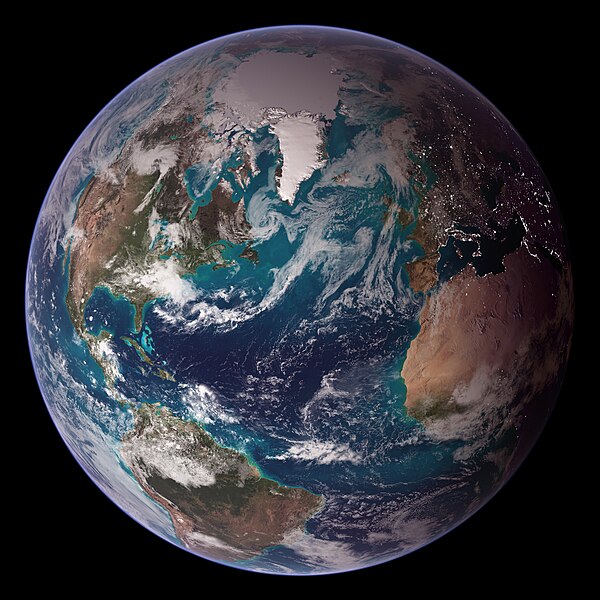The ecological footprint measures human demand on natural capital, i.e. the quantity of nature it takes to support people and their economies. It tracks human demand on nature through an ecological accounting system. The accounts contrast the biologically productive area people use to satisfy their consumption to the biologically productive area available within a region, nation, or the world (biocapacity). Biocapacity is the productive area that can regenerate what people demand from nature. Therefore, the metric is a measure of human impact on the environment. As Ecological Footprint accounts measure to what extent human activities operate within the means of our planet, they are a central metric for sustainability.
The natural resources of Earth are finite, and are being used unsustainably given current levels of use.
Ecological Footprint per person and HDI of countries by world regions (2014) and its natural resource consumption
Ecological Footprint per person and HDI of countries by world regions (2014)
Natural capital is the world's stock of natural resources, which includes geology, soils, air, water and all living organisms. Some natural capital assets provide people with free goods and services, often called ecosystem services. All of these underpin our economy and society, and thus make human life possible.
Mangrove swamp at Iriomote Island, Japan, providing beneficial services of sediment accumulation, coastal protection, nursery and fish-spawning grounds which may in turn support coastal fishing communities. At least 35% of the world's stock of mangrove swamps has been destroyed in just 20 years
Honeybee (Apis mellifera) pollinating an Avocado crop. Healthy stocks of wild and cultivated pollinator species are important to support the farming industry and help ensure food security.
Aerial view of the Amazon Rainforest. Looked at as a natural capital asset, rainforests provide air and water regulation services, potential sources of new medicines and natural carbon sequestration.
Fires along the Rio Xingu, Brazil – NASA Earth Observatory. Loss of natural capital assets may have significant impact on local and global economies, as well as on the climate.






